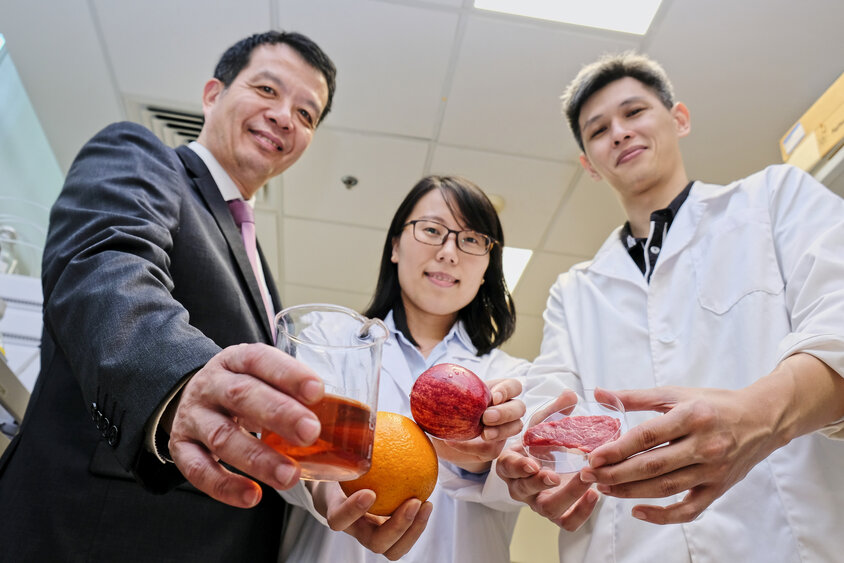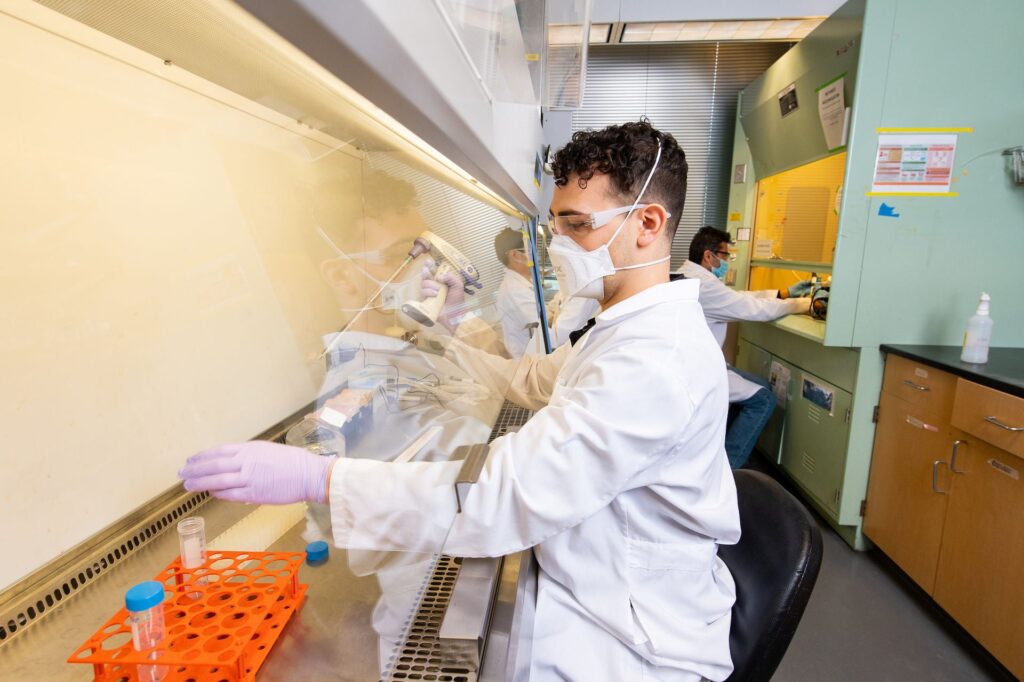5 Mins Read
With the future of food intricately linked with the future of the planet, as well as the growing development of plant-based and cellular-agriculture-derived foods, some universities are offering courses solely focused on alternative proteins.
Ever wanted to learn more about alt-protein, but not in a scour-the-internet kind of way? Have you wanted to dig deep and do a university degree for it?
It’s becoming possible, with many institutes offering and planning to introduce courses focused solely on alt-protein. A major proponent of this is the Good Food Institute (GFI), which is partnering with multiple universities to support the global student movement called the Alt Protein Project.
These student groups are driving research, innovation and education around alternative proteins in their universities, helping build courses to promote awareness and training about the topic. The Alt Protein Project has chapters in over 50 universities around the globe, from New Delhi and Sydney to Belo Horizonte, Lisbon and California.
Here are some of the universities offering alt-protein courses.
Previous alt-protein courses

In 2021, Singapore’s Nanyang Technological University launched an undergraduate course, Future Foods – Introduction to Advanced Meat Alternatives, focusing on alternative proteins and cultivated meat. The first such programme offered by a local tertiary institution, it was offered as an elective for third and fourth year students taking the Food Science & Technology degree as a second major, which was jointly offered by NTU and the Netherlands’ Wageningen University.
This was followed by a graduate-level Introduction to Advanced Meat Alternatives module in January 2022, which was run by the National University of Singapore’s Food Science and Technology department and created with the help of GFI APAC.
GFI Israel, meanwhile, facilitated alt-protein courses at multiple Israeli universities, including the Hebrew University of Jerusalem in 2020. Called Cultivated Meat and Plant-Based Meat, this was then migrated to Tel-Aviv University and Ben Gurion University.
At Stanford University, the in-house chapter of the Alt Protein Project ran a one-unit course, Rethinking Meat: An Introduction to Alternative Proteins in 2021. The 10-week class saw 12 speakers from research, industry, and academia talk about various aspects of the industry, from the science behind the tech to the climate and health impact.
Meanwhile, UC Davis‘s Cultivated Meat Consortium held a short course to provide an overview of the science and research challenges, cell lines and media development, and product development and regulatory considerations of cell-cultured meat.
And earlier this year, the Norwegian University of Life Science launched the second iteration of a course developed according to the Alt Protein Fundamentals Programme, originally developed by students from the University of Cambridge Alt Protein Project. GFI Europe is working with the university to turn this course into a permanent offering.
UC Berkeley
The Sutardja Center for Entrepreneurship & Technology at UC Berkeley offers a course called Design of Plant-Based Foods, which connects students with entrepreneurs, corporations, VCs, and plant-based organisations and covers food science principles around plant-based product design.
Here, students work in teams to tackle industry challenges and create innovative plant-based products. It’s highly recommended that students have a strong background in biological sciences, chemistry, chemical engineering or related disciplines.
Additionally, a special emphasis will be placed on “designing wholesome, minimally processed foods” that make use of “locally available raw materials”. It will run from January to May 2024.
UC Berkeley also has an Alt: Meat Lab to help entrepreneurs and researchers investigate novel proteins and alternative fat sources.
Tufts University

In Boston, Tufts University has a Certificate in Cellular Agriculture programme, which trains skilled workers to accelerate research and commercial product development in this field and aims to address the industry’s need for highly trained professionals.
The course, which can run from 12 to 24 months, preps students to “enact change in food sustainability, personalised nutrition and food security”. They learn how to translate cell ag research on alternatives to meat, eggs, dairy and leather into commercially available products.
The programme offers foundational education in the methodologies, context and implications of cellular agriculture technology, and covers subjects as varied as food science, biotechnology, tissue engineering, synthetic biology, biomedical engineering, and more.
University of Winchester

The UK’s University of Winchester offers a six-module Plant-based Nutrition Course led by Dr Shireen Kassam, co-founder of Plant Based Health Professionals UK.
The course explores the diet-related causes of disease and death in the UK, as well as the role of nutrition in optimal health and wellbeing. It covers the key aspects of a healthy vegan diet, and reviews scientific literature to support the rule of plant-based nutrition in the prevention of chronic diseases, including cardiovascular diseases, diabetes, cancer, dementia, obesity, bone health, women’s health and gastrointestinal disorders.
It draws comparisons with other popular diet patterns like low-carb and Paleo diets, assessing national and international nutrition guidelines and their strengths and weaknesses. The course presents a link between our diet and its impact on the planet, while presenting a model of sustainable farming.
Other alt-protein courses in worldwide universities
According to GFI, which itself has a free online course covering the science and economics of plant-based proteins, fermentation-derived proteins and cultivated meat in five modules, the Norwegian University of Science and Technology runs a seven-week course based on the Alt Protein Fundamentals Programme.
In the Netherlands, meanwhile, Utrecht University’s Alt Protein Project chapter is teaching the programme to undergraduate and master’s students studying science and business subjects. And the University of Wageningen is offering a three-day course titled Proteins of the Future in June 2024, which will deep-dive into the potential of plant-based proteins, offer insights into the science of alt-protein and equip students with the tools to build a more sustainable food system.
And in Germany, the Bayreuth-Kulmbach Alt Protein Project has developed its own Alternative Proteins: Policies and Regulation course, which is now being offered to all master’s students studying Global Food, Nutrition and Health.
Many other US universities are hoping to build alt-protein programmes, including WPI, Penn State, and the University of Minnesota – which is a marker of the future popularity of these courses.



